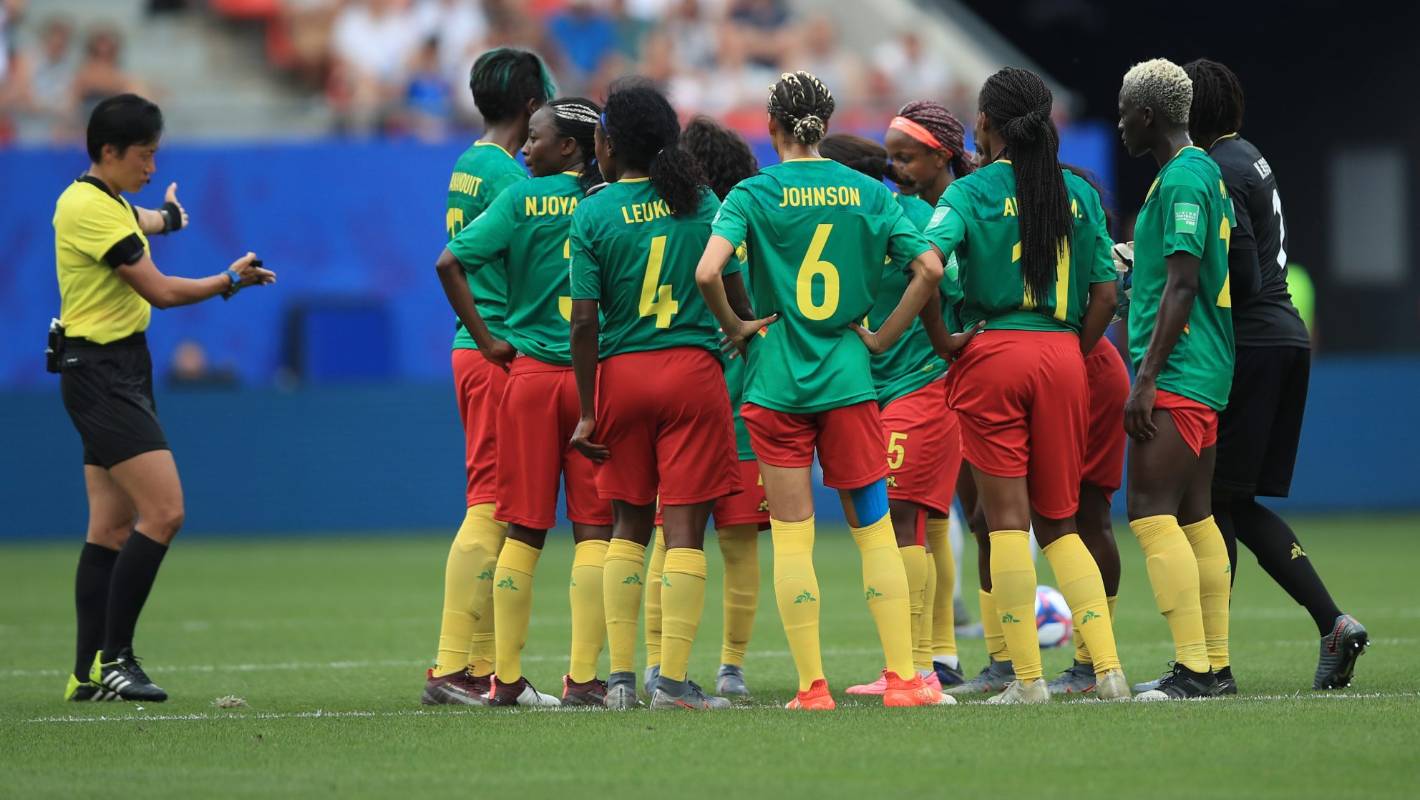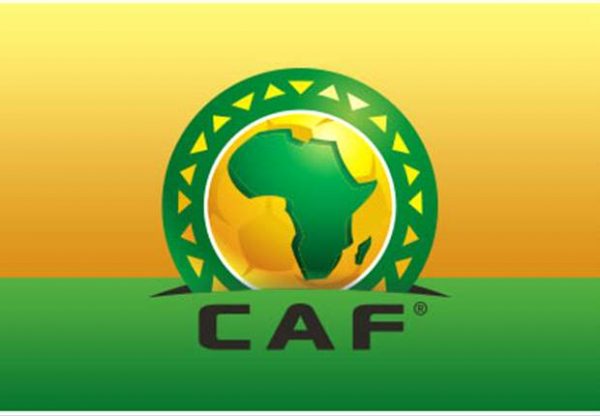Still angered by what it called VAR/Referee induced injustice, Nigeria’s third place opponents Tunisia have announced they will boycott draw for the 2021 AfCON billed for Aida Ballroom Cairo Marriott Hotel on Thursday.
This decision according to Tunisian authorities is in protest against the penalty not awarded to the national team during the end of extra time in the semi-final against Senegal.
Some Tunisians are however not in support of the boycott preferring instead that they put up appearance and properly register their disdain for the decision. Meanwhile Egyptian referee Jihad Jericha has been appointed to take charge in the third place match billed Wednesday at the Al Salam Stadium.
Jericha according to CAF will be assisted by compatriots Mahmoud Ahmed Kamel and Chadian Issa Yaya and also by Joshua Bondo from Botswana.
Both Nigeria and Tunisia are singing lamentation songs after failing in their bid to qualify for Friday’s final with Nigeria losing to Algeria while Tunisia lost to Senegal in the semifinals.
After failing to get a place in the final, both teams are desperate to at least take something home from Cairo, an indication that the third place match which has been described as ‘small final’ will be full of fireworks.
Nigeria last won the third place in 2010 in Angola defeating Algeria by a lone goal, while Tunisia won the third place in 1962 beating Ugandan 3-0.
Tag: VAR
-
Alleged VAR/Ref Injustice: Tunisia to boycott AFCON 2021 Draw
-
Rohr says VAR delay unsettled Super Eagles
Nigeria’s coach Gernot Rohr could not resist a dig at the VAR system after his team’s win 2-1 over South Africa at the Africa Cup of Nations on Wednesday.
He said the time taken to confirm his opponents’ goal had unsettled his team.
The VAR system was introduced at the quarter-final stage and is being used in the competition for the first time.
It made its first significant intervention when it overruled a linesman’s decision to disallow Bongani Zungu’s goal for offside.
“For five minutes we had to wait, goal or no goal, and that was hard for my team,” the German told reporters in Cairo.
“The second goal did not go in for us and then you have seen this free kick, and this VAR decision ——- you never know what can happen with VAR on a free kick.”
Rohr also praised the character of his side who came back from 2-1 down to beat Cameroon 3-2 in the previous round and grabbed a late winner in Wednesday’s match.
“Now we are mentally strong and we were able to come back,” he said. “The attitude of my players was wonderful. Such a good relationship with everyone.”
Rohr recalled when Nigeria were beaten 2-0 by South Africa at home in a qualifier for the tournament two years ago, one of his first games in charge.
“We had a young team but this team continued to work and this result perhaps helped us to beat in the next game Cameroon, who were African champions, 4-0 in the same stadium (in a World Cup qualifier).
“So, we will also learn from this match,” he added. -
VAR to be used from Africa Cup of Nations quarter-finals
The Video Assistant Referee (VAR) system will be introduced from the quarter-final stage of the Africa Cup of Nations, increasing the possibility of drama in a tournament traditionally filled with refereeing controversy but this year rather muted.
It was originally planned to use VAR from the semi-final stage but it will now be brought in from the last-eight games.
Several marginally offside calls and an erroneous handball decision, which Ghana felt might have contributed to their early exit from the tournament, have been the extent of controversy in Egypt this year in a triumph for the battered reputation of African referees.
VAR has not been extensively used on the continent but it has produced situations which have tarnished the game’s image and been part of the administrative malaise that caused FIFA to step in and take over the running of the Confederation of African Football from next month.
The second leg of the African Champions League final was abandoned in May in a row over the absence of the technology when it had been scheduled to be used.
When the referee disallowed an effort by Wydad Casablanca, they stormed off in protest that VAR had not been consulted, even though they had been told before the game that the system was not operational.
The referee of the first leg was banned for six months after he made controversial calls after consulting VAR.
This was deemed, however, to be a knee-jerk reaction by CAF and the suspension of Gehad Grisha was later lifted.
CAF president Ahmad Ahmad said not using the VAR system in the opening rounds was a “measure of prudence”.
“Those countries that use VAR did not rush into it from the start. It’s a technology that a lot of people don’t completely use yet,” he told reporters before the tournament. -

FIFA defends VAR ahead of women’s World Cup quarter-finals
FIFA on Wednesday defended its Video Assistant Referee (VAR) review system, saying referees had reached a 98 Percent accuracy rate in decision-making during the group stage of the ongoing women’s World Cup in France.VAR system has made a controversy-filled debut in the women’s game at World Cup level, baffling players and coaches, and frustrating fans.
Scotland and Nigeria exited the tournament after their opponents were awarded penalty retakes when VAR ruled their goalkeepers had stepped centimeters off their line.
When France knocked out Brazil in the last 16, three goals were disallowed following reviews.
Cameroon’s players were so indignant at the VAR interventions during their match against England that they appeared to stop playing on several occasions.
A competitive Japan side went out in the last 16 after a controversial penalty decision.
“VAR cannot be blind, cannot ignore,” said Pierluigi Collina, Chairman of FIFA’s Referees Committee. “If you have a tool that offers you the possibility to check, you have to check.”
Although it has no power of adjudication, VAR’s viewing ability enables minor infractions — sometimes imperceptible to the human eye, Collina admitted — to impact a game.
FIFA says that without VAR the group-stage accuracy rate would be a less impressive 92.51 percent and officials have expressed surprise at the anger directed at the system.
“We can never be perfect. No one player, no one coach is perfect,” Massimo Busacca, Head of FIFA’s Refereeing Department, said on Wednesday. “We are not perfect. What’s the problem?”
At a similar point in last year’s men’s World Cup – the first time the video replay system was used in the global showpiece event — FIFA celebrated a major controversy-free tournament, thanks in large part to VAR.
FIFA said 99.3 percent of match-changing plays — those leading to goals, penalties, red cards or instances of mistaken identity — were called correctly in Russia, a number that would have been 95 percent without the observational power of VAR.
But it has been a different story at the women’s tournament and questions have been raised over the lack of exposure women players have had to the system and the training women referees received before the tournament.
No women’s leagues have implemented VAR, and referees attended only four FIFA-organized seminars.
Still, Collina refuted the idea world soccer’s ruling body was still testing the technology.
“We are not experimenting,” said the Italian who refereed the 2002 men’s World Cup final. “We are simply implementing the laws of the game.”
-

VAR controversy: CAF orders rematch, stripes Esperance of Champions League title
The Confederation of African Football (CAF) Emergency Committee which sat in Paris, has officially decided that the 2018/2019 CAF Champions League game will be replayed after the VAR controversy.
The replay between Esperance of Tunisia and Wydad of Morocco will take place on neutral ground. According to Morocco World News quoting television channel, Arriyadia, the game will take place in South Africa.
The executive committee is considering the suspension of the Rades Stadium, in Tunisia as a consequence of the foul play from one of its referees in combination with the Video Assistant Referee technology (VAR) being out-of-order during crucial moments of the match.
There might also be a fine for Esperance and the Tunisian Football Federation (FTF). FTF requested that the match be scheduled after CAN 2019 in Egypt. That request has allegedly been denied.
After a football scandal that Wydad Athletic Club chairman, Said Naciri has deemed “total shame for African football,” CAF had convened an emergency meeting in Paris to examine the unprecedented controversies between Tunisian Esperance and WAC.
The scandal was caused when the VAR, was said to not be functioning when it was necessary to review critical moments of the match. By not having the VAR in functioning order prior to the match, the referee allegedly breached several rules of the game, costing WAC the goal which would have tied the CAF Champions League 2018/2019.
WAC players protested to the referee when Esperance was declared the championship winner, leaving Wydad behind with the final score of 2-1 behind. CAF President Ahmad Ahmad sided with Wydad, arguing that the goal, which was rejected during the second leg, was legitimate. Eventually, he called for an emergency meeting to be held on Tuesday to discuss the VAR controversy during the second leg.
On Tuesday, CAF decided to postpone this emergency meeting about the CAF Champions League game until after the re-election of FIFA President Gianni Infantino.
-
VAR to be used at UEFA Nations League final
Video assistant referees are to be used at this week’s Nations League finals.
It is the first time VAR has been used in a national team competition run by European football’s governing body Uefa.
The technology was used at the 2018 World Cup and in this season’s Champions League knockout stages, while it will make its debut in the Premier League next season.
The Nations League starts on Wednesday when hosts Portugal play Switzerland.
England face the Netherlands in the other semi-final on Thursday. The third-place play-off and final are on Sunday.
VAR checks for “clear and obvious errors” relating to four match-changing situations: goals, mistaken identify, red cards and incidents in the penalty area.
-
FIFA recommends use of VAR at Women’s World Cup
The FIFA panel overseeing Women’s World Cup preparations has recommended using VAR to help referees.
FIFA President Gianni Infantino and UEFA leader Aleksander Ceferin, who chaired a meeting on Monday, are strong backers of the plan.
At a meeting in Miami next week, FIFA’s ruling council is set to ratify video assistants being deployed to help women referees at the June 7 to July 7 tournament in France.
The video assistant referees will likely include men helping advise all-female teams of referees and assistants. No domestic women’s competition uses VAR.
Some men with experience working in VAR at the 2018 World Cup in Russia took part in trials at a boys’ youth tournament in Qatar last month with Women’s World Cup match officials.
“The tests were quite positive,” Infantino said. “I would of course wish that we do use VAR at the Women’s World Cup.”
U.S. women’s national team coach Jill Ellis, who brought up the issue at the men’s World Cup last summer in Russia, said on Monday evening that the decision was “fantastic”.
“It’s great news. I think everyone in our sport realised it was such a positive, and to have now the same access to the same technology, I think it’s great,” Ellis said.
“It’s going to be an intense World Cup and I think having the benefit of VAR is important.”
-
Moroccan league set to introduce VAR
The Moroccan top-flight league will use the Video Assistant Referee (VAR) starting next season
President of the Royal Football Federation (Frmf), Faouzi Lakjaa has announced that the Morocco Botola Pro League will adopt video technology from next season to assist referees.
This comes as VAR is also set to be used at the Africa Cup of Nations finals in June after being tried at the African Nations Championship (Chan) last year in Morocco.
“I inform you that the Botola will not start next season without VAR, and those who are not qualified for this new technology will not practice in Morocco,” Lakjaa was quoted as saying by Aftik Foot .
The use of VAR requires specific training and the Frmf has partnered with Fifa for the training of referees on the use of this officiating technology.
VAR is yet to be widely adopted in Africa and was used during last season’s Caf Champions League final, first leg but still stirred controversy.
-

English referees can’t use VAR, need to study the system – Sarri
Chelsea manager Maurizio Sarri believes “English referees are not able to use VAR” after the system awarded Harry Kane the penalty that cost his team Carabao Cup semi-final first leg loss to Tottenham.
The only goal of the Wembley game came from the spot after referee Michael Oliver consulted the video assistant referee to check if Kane was onside before he was fouled by goalkeeper Kepa Arrizabalaga.
The VAR camera suggested Kane was onside, but Chelsea showed a screenshot of their own system after the game that suggested he was offside.
After a 93-second wait, Oliver gave the penalty and Kane scored his 160th goal for Tottenham.
“A few minutes ago I watched the video from our camera. It was offside. Our camera was in line with Harry Kane”, Sarri told Sky Sports.
“I don’t think English referees are able to use the system.
The Italian also noted that the English referees need to study the VAR system very well before usage.
“If you are not sure with the system, as a player you have to follow the ball and at the end of the action decide. But the linesman stopped and didn’t follow the ball – for our defenders it was offside. I don’t know about the goalkeeper but sure the defenders were affected.
“I think they have to study the system.
“It’s very strange in the Premier League there isn’t VAR and in the Carabao Cup there is the system. It’s very strange for us, the players and referees.”
The Premier League is set to introduce the system from next season.
-

Carabao Cup: I don’t like VAR, says Pochettino after Chelsea win
Tottenham manager Mauricio Pochettino said he was “unhappy to win like this” after the system awarded Harry Kane the penalty that won the Carabao Cup semi-final first leg against Chelsea.
The only goal of the Wembley game came from the spot after referee Michael Oliver consulted the video assistant referee to check if Kane was onside before he was fouled by goalkeeper Kepa Arrizabalaga.
The VAR camera suggested Kane was onside, but Chelsea showed a screenshot of their own system after the game that suggested he was offside.
The Premier League is set to introduce the system from next season.
“We have six months to improve the system,” Pochettino said. “There is a lot of work to do.”
Pochettino was even stronger in his criticism of the technology, despite the part it played in his side’s victory.
“I don’t like the VAR,” he said. “Today we get the benefit of it but after watching the World Cup and another league like La Liga, I see that nobody is happy from day one that they started to use it.
“To get the benefit is nice but I am unhappy to win the game like this.